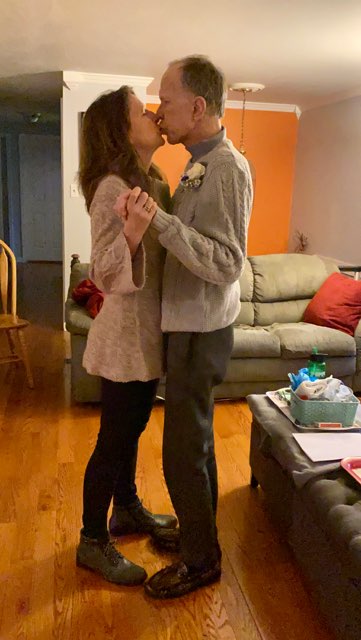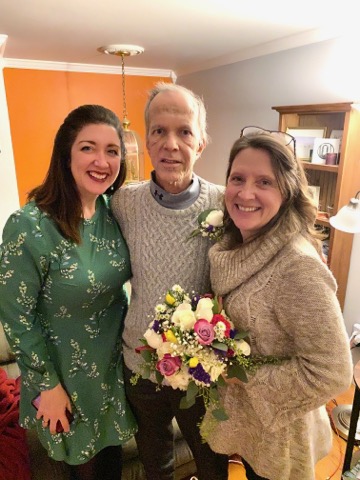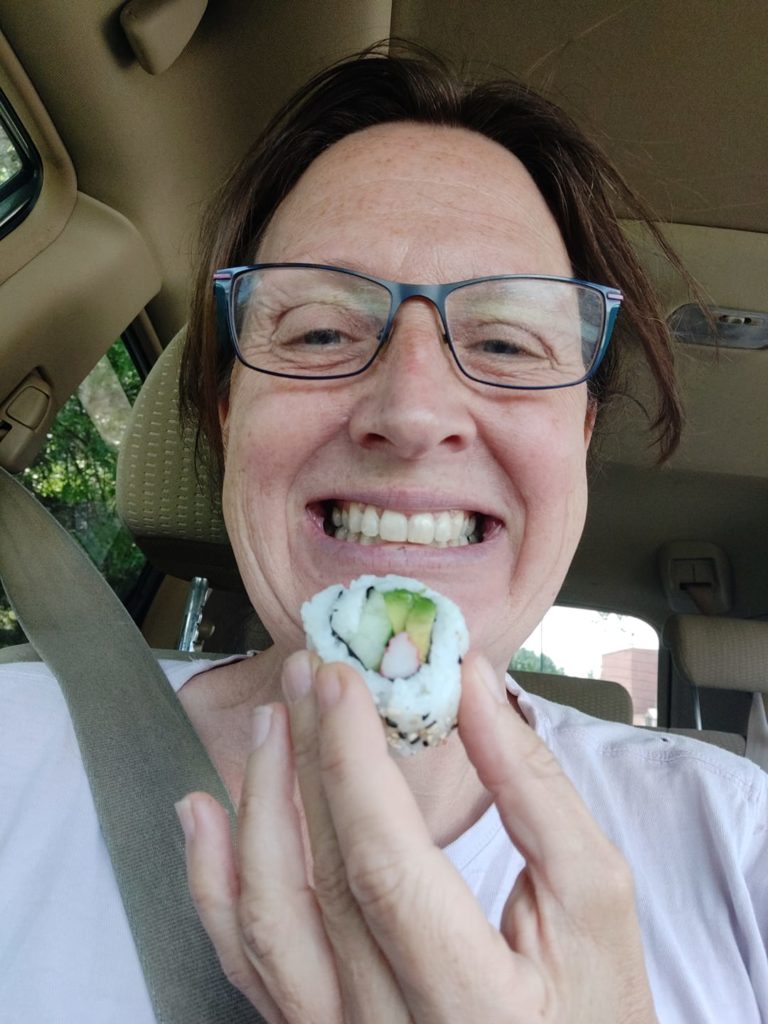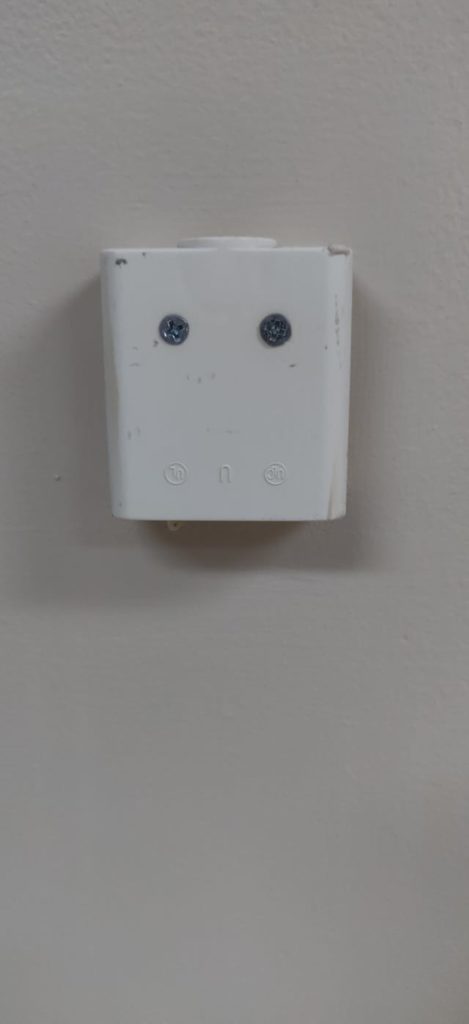
A few days ago, Alma and I were sitting under the maple tree in the front yard — Kristen’s tree, the tree Mark planted in memory of his first wife — seeking shade on another blazing hot day. I mentioned that our long tradition of going to see the Pittsburgh Ballet Theater’s performance of the Nutcracker would likely not happen this Christmas due to Covid.
The sides of Alma’s lips formed a perfect downward crescent. We’ve been going to see the Nutcracker since Alma was a toddler. Some years we sit in the nosebleed section, take off our shoes, and eat Twizzlers and M & M’s while we watch. Sometimes, I splurge and get better seats. We watch the dancers’ muscles contract and listen to their pointe shoes tap tap tap. I buy the tickets in the summer, and sometimes, like last year, I forget what seats I bought. “Oh, well look at that!” I exclaim in surprise as we are led by the usher down, down, down to the front. We pass rows and rows of little girls dressed in crushed velvet, women in heels, and men in sports jackets. We settle in for the familiar unfolding of a solid narrative in the first half, and then a nearly completely narrative-free second half.
“No more pas de deux!” I said, thinking fondly of the playful tumble of a dancer’s hands that marks the beginning of dancing with a partner. To distract us from the sad probability of the Nutcracker not being staged this year, I began to imagine how the the narrative could be adapted to include social distancing. Alma jumped right in. “The parents throw a Christmas party, but no one comes.” “Clara’s parents are loving but cold, and just leave her Christmas presents outside her bedroom door.” “The kids aren’t allowed to have friends over, and sit alone playing with their toys.” “The Rat King comes into battle with an automatic weapon, and no toy soldiers can advance on him.”
We were on a roll, laughing at the utter destruction that some dark humor and a Covid-lens could wreck upon our beloved ballet. The show could go on, of course it could! The question is, would you want it to?
Mark and I got married in early March, in our living room. There were three attendants and one dog. With just a few hours notice, Hilary somehow whipped together a bouquet and a boutonniere and a poem. I stopped and picked up a cake from the grocery store on my way home from work. I called our neighbor and friend, Corinne, to come over. Mark kept on his sweatpants and added a sweater. I stayed in my work clothes. After we exchanged vows and declared ourselves married, adding in a first dance was spontaneous. I knew Mark’s energy was limited, and I quickly asked Alexa to play “Unchained Melody,” my parent’s love song. I held him as we slowly spun in a circle in the middle of the living room.
Mark wasn’t doing too well back then. In the photos, he looks approximately 80 years old. I am smiling and wearing slapdash makeup in an effort to look a bit perkier, or as Mark calls it, gross. Mark looks confused, which was not that he was, but that the radiation had taken such a toll that he really could not move his facial muscles too well. Also, if you have no saliva, your mouth muscles are a little noncompliant. His feeding tube was slipping out from under his sweater as I called out, “Smile!” as Corinne took a photo. I am, he said.

Next Monday is Mark’s surgery. Ahead of that, it’s been a difficult two weeks as Mark has again had seizures, something the medications had kept at bay for months. The first 911 call was made by Matthew, and Mark refused to go with the EMTs to the hospital. A couple days later, I was on a work conference call on my cell phone when Mark started to seize. The 30 minute call had just started; he fell off the couch. I muted myself, held my body over his to keep him from hurting himself, and eventually guided him back onto the couch. His legs weren’t working great, and he couldn’t answer my questions. When he seemed safe enough, I went over to the house phone and called 911. Occasionally, I unmuted myself on the cell phone to say, “uh-huh” or “I agree” and then remuted to talk to the dispatcher on the house phone. By the time the police and ambulance arrived, Mark was out of it enough, post-seizure, that he could not protest as they loaded him onto a stretcher. The MRI in the ER showed that there’s either new tumor growth or a lesion from radiation. I found that out when they called me near midnight at home, after we left because Mark refused to be admitted as was their recommendation. He gets ornery, illogical and noncompliant after seizures. “Mark, you could have another seizure. We need to find out why that’s happening so that they can be stopped,” I calmly explained. “I’m not going to have another seizure,” he replied. “Why not?” I said. “Because I’m not,” he said. Really, there’s not much to be done when he gets to that point.
At subsequent follow up and pre-op appointments, a bevy of doctors concurred that statistically it’s most likely that the spot on the MRI is a radiation lesion. The radiation oncologist said that the peak of these lesions occurs 1.5 to 2 years after radiation ends. I’m just stressed enough that it actually took me a few days to realize that this “good news” meant that rather than new tumor growth, he may have damage to healthy brain tissue that fell within the radiation field. Which is better. For sure. I think. Definitely. Kinda.
The skinny on the surgery: best case scenario, which the neurosurgeon says is the least likely: get in there easy-breezy through the sinuses, clean out scar tissue and remove the prosthetic. This works if tissue has regrown between the prosthetic and his brain. Then, no opening of his cranium would be needed. The more likely scenario, because they radiated the heck out of his head and tissue isn’t into regrowth when you have actively tried to kill it: 8-10 hour surgery, opening up his skull, removing the prosthetic, removing the necrotic tumor, sending tissue repeatedly to pathology to see if there are active cancer cells as they chip away at the area, patching the hole in his brain lining created by this process with a graft from his leg or arm, hoping that it vascularizes.
If not, rinse, repeat.
Last night as I slept, Mark wrapped his cold, thin body around me. Sleepless in the night, I reflected on how our sleeping positions have varied over the year. From this, our normal close embrace, to Mark being gone for what felt like a very long time. When Mark finally returned, he would sleep the sleep of the dead, collapsing on his side of the bed and then waking like a zombie to wander the house in the middle of the night. Months of that evolved into him falling asleep on my shoulder, and then waking in the night to relocate to the couch. Months of that evolved into him staying in bed with me the whole night, navigating his tossing and turning to align with mine.
Last night, I counted the nights. Four more until his surgery. And then he will be gone again. And then, we just don’t know.
If you wonder if it’s all pure love and sadness over here, it’s not. A couple days ago, Alma texted me at work and said that Mark had just returned to the house — in the van. Mark does not have a license, and with his seizures he should not be driving. “What did you do today?” I carefully asked when I got home. “Oh, not much. I went up to the school to take a walk,” he said. “How did you get there?” I asked. “In the van,” he said. “It’s just a short drive.” I gently reminded him that he is not supposed to go anywhere alone, due to the seizures and trying to protect his head prior to the upcoming surgery. I did not say anything about the driving, because instead I am just planning to make sure we all do a better job of hiding the keys. Tonight, Alma answered the house phone. It was the Bethel Park post office calling to say that they had Mark’s passport. It had been found in a strip mall in Bethel Park. “Hey Mark,” I said after dinner. “Did you go to the Bethel Park Shoppes?” “Oh yeah,” he said. “Why?” I asked. “I wanted to get ramen at Aldi.” He had not gotten any. I asked why. “I got distracted,” he said, “and my passport must have fallen out of the car.”
Listen, I want to kick Mark’s ass about as often as I want Jesus to take the wheel. This is all very difficult, and I realize I have no control over any of it. If Jesus does, that would be cool. If Mark did, that would be cool. If the neurosurgeon and ENT surgeon and anesthesiology team and nurses and every darn person in the operating room have some control, that would be cool.
Because I like the pas de deux. Sometimes it’s been as peaceful and elegant as the dance of the Sugar Plum Fairy. Sometimes it’s been as chaotic as the clown car opening up and the dancers spilling out all over the stage, wrecking havoc.
All I know is, I just want to keep dancing.

